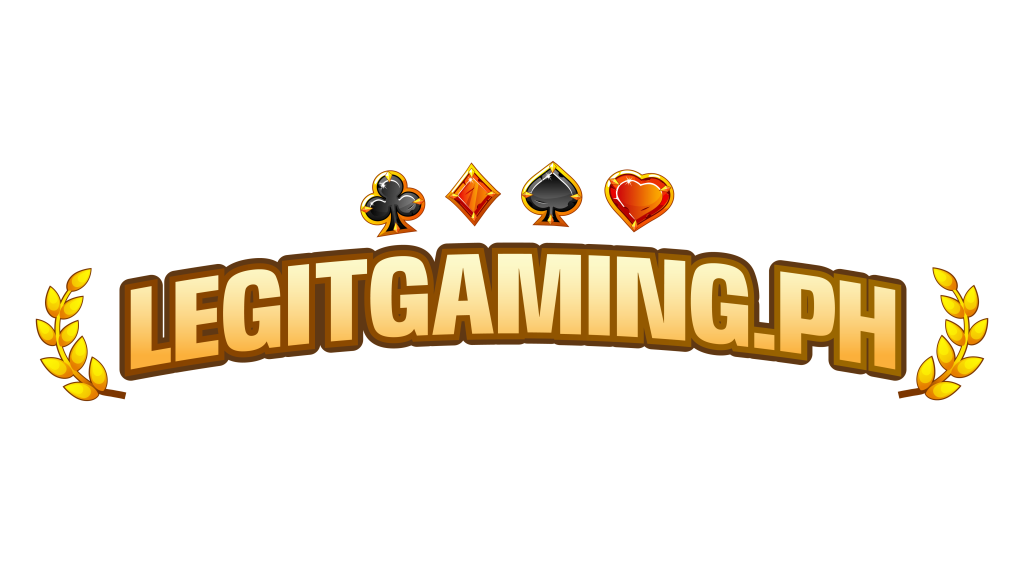



Table of Contents
Introduction to Legit Gaming in the Philippines
The gaming industry in the Philippines has rapidly grown over the past decade into a multi-billion dollar industry. From traditional casino gambling to online and mobile gaming, the Philippines has become an attractive hub for both players and gaming companies in Southeast Asia.
Gaming used to be limited primarily to land-based casinos, but after the creation of the Philippine Amusement and Gaming Corporation (PAGCOR) in the 1970s, the industry began to expand. PAGCOR helped provide regulations and licensing, allowing more casinos and gaming venues to legally operate in the country.
In more recent years, the internet and mobile technology have enabled online and mobile gaming to thrive across the Philippines. Gambling sites, online casinos, eSports betting, fantasy sports, and more have gained popularity, especially with younger demographics. While illegal unlicensed gambling still exists, there are now many legitimate “legit gaming” options available.
Legit gaming refers to legally sanctioned and regulated gaming operations within the Philippines. This includes land-based casinos and gaming venues sanctioned by PAGCOR, as well as licensed online gambling sites and mobile apps. Any gaming operator must acquire the proper gaming licenses and regulatory approvals to be considered ‘legit’ in the Philippines.
PAGCOR serves as the chief regulator for gaming in the country. They enforce compliance and standards across land-based and online gaming, aiming to protect players and promote responsible gaming. Operating a gaming business in the Philippines without PAGCOR approval is illegal and risks being shut down.
Other regulations also impact legit gaming. The Anti-Money Laundering Act requires compliance from gaming operators to prevent financial crimes. Gaming companies and venues need to verify customer identities and report suspicious transactions or activities. Data privacy and cybersecurity regulations also apply to legit gaming companies operating online or mobile platforms.
Overall, the gaming industry continues to grow across the Philippines within the sanctioned legal framework. With proper licenses and compliance, more Filipinos now have access to legit regulated gaming options ranging from in-person to online. PAGCOR and evolving government regulations aim to ensure these gaming platforms are operated fairly, safely, and responsibly.
Top 10 Legit Gaming Companies in the Philippines
The Philippines has a thriving legit gaming industry, with many reputable companies operating in the country. Here are the top 10 legit gaming companies in the Philippines:
1. PhilWeb
Founded in 1995, PhilWeb is one of the oldest and largest gaming companies in the Philippines. It offers a wide range of gaming options including bingo, rapid bingo, e-games, and sports betting. The company operates over 300 gaming sites across the country and generates annual revenue of over $150 million. PhilWeb employs around 5,000 people.
2. Pacific Online Systems Corporation (LOTTO)
Pacific Online Systems is the Philippine licensee and operator for lottery games in the country including Lotto 6/42 and Mega Lotto 6/45. The company operates over 1,500 terminals and generates over $100 million in annual revenue. It employs around 2,000 people.
3. DFNN Inc.
DFNN operates the Fariñas Group of Companies which includes Club Bingo. The company operates bingo parlors and e-games cafes across the Philippines. DFNN generates annual gaming revenue of around $50 million with over 1,000 employees.
4. Leisure and Resorts World Corporation
A subsidiary of Belle Corporation, Leisure and Resorts operates online and land-based bingo through its Bingo Bonanza brand. The company has a network of over 100 bingo parlors nationwide and annual revenue of $30 million. It employs around 800 people.
5. AB Leisure Exponent Inc.
AB Leisure operates bingo parlors under the Bingo Palace brand name. The company has 50 branches across the country and annual revenue of $20 million with around 500 employees.
6. I-E-T Solutions Inc.
I-E-T Solutions operates the EZ2 Lotto game under a license from the Philippine Charity Sweepstakes Office (PCSO). The company has an extensive network of over 5,000 terminals across the Philippines.
7. Pan Asia Gaming Technologies Corporation
Pan Asia operates e-games cafes under the Winford brand name. The company has about 50 branches nationwide with projected annual revenue of $15 million. It employs around 300 people.
8. Meridian Vista Gaming Inc.
Meridian Vista operates bingo parlors under the name Winford Bingo. The company has 20 branches in Metro Manila and neighboring provinces. It generates around $10 million in annual revenue.
9. Pacific Online Systems Corporation (KENO)
Pacific Online Systems is also the Philippine licensee for KENO, a number draw game. The company operates KENO games through terminals located in bingo parlors and e-games cafes nationwide.
10. Total Gamezone Xtreme Inc.
Total Gamezone operates e-games cafes under the Toto Xtreme brand. The company has a network of gaming lounges across Metro Manila and neighboring areas with around 10 branches.
Benefits of Legit Gaming
Legitimate gaming provides many benefits for the Philippines. It is a major driver of economic growth and provides significant tax revenue for the government. The gaming industry directly employs over hundreds of thousands of Filipinos and creates even more jobs indirectly.
Legitimate gaming operations attract tourists from within the Philippines and other countries in Asia. Major casino resorts like Okada Manila, Solaire Resort & Casino, and City of Dreams Manila cater to foreign visitors and provide world-class entertainment options. The tourism stimulated by the gaming industry brings income to the country.
The gaming sector also provides entertainment options for the local population. Filipinos enjoy participating in casino games, sports betting, lotteries, and online gaming for fun and the chance to win money. Regulated gaming channels this demand into above-board operations that benefit the economy, rather than underground illegal activities. Legitimate gaming gives Filipinos an enjoyable recreational activity and a chance at winning jackpots and prizes.
Overall, regulated and controlled gaming in the Philippines generates economic growth, jobs, tourism, and entertainment for the population. The benefits of legitimate gaming make it an important industry for the country.
Pros of Top 10 Legit Gaming
Legit gaming provides a number of benefits and advantages to the country and local communities where it operates. Here are some of the key pros of legit gaming:
- Provides Safe, Regulated Entertainment: Legit gaming operators are licensed and regulated by government agencies. This oversight ensures proper consumer protections are in place, and that the games offered are fair, secure, and safe for players. Players can enjoy casino games, sports betting, and more in a controlled environment.
- Revenue Supports Government Programs: Taxes and fees from licensed gaming operations provide substantial tax revenue for federal, state, and local governments. This money helps fund a variety of public programs, infrastructure projects, education initiatives, tourism promotion, and more. Many communities rely on gaming tax dollars.
- Attracts Tourism: Gaming facilities help drive tourism by offering amenities like hotels, restaurants, live entertainment, and convention space. This influx of visitors supports local businesses and creates jobs in the hospitality and service industries, from hotels to restaurants. Gaming destinations become hubs of economic activity.
- Creates Jobs: The gaming industry directly employs thousands of workers to operate the casinos, sportsbooks, and related tourism businesses. These jobs include dealers, gaming staff, hotel personnel, food service, maintenance, management, and more. Many are well-paying jobs with opportunity for advancement. Indirectly, the gaming industry supports even more local jobs.
Cons of Top 10 Legit Gaming
Legit gaming in the Philippines does come with some potential downsides that need to be considered.
Risk of problem gambling – While most people are able to enjoy gaming responsibly, there is a risk that some individuals could develop unhealthy gambling habits and addictions. This is especially true with the convenience and accessibility of online gaming. Regulation and responsible gaming practices are important to protect vulnerable populations.
Money laundering risks need regulation – The gaming industry can be exploited by criminal elements looking to launder money. Robust regulations and compliance practices are essential to prevent this and maintain the integrity of gaming operations. Strict know-your-customer and anti-money laundering policies should be implemented.
Can take away from other entertainment industries – The growth of gaming could potentially divert spending and engagement away from other sectors like cinema, concerts, restaurants, and more. A thriving gaming industry should not come at the expense of a diverse entertainment ecosystem. There needs to be a balance of gaming and non-gaming options.
Regulations for Top 10 Legit Gaming in the Philippines
The legit gaming industry in the Philippines is regulated by the Philippine Amusement and Gaming Corporation (PAGCOR), which ensures compliance with rules and regulations. PAGCOR was created through Presidential Decree 1869 in 1983 to regulate and license gambling in the country.
All gaming operators and platforms must acquire a license from PAGCOR to legally operate in the Philippines. The regulatory requirements include:
- Gaming operators must be registered corporations in the Philippines with a minimum paid-up capital.
- Operators must meet extensive ownership and management screening. Background checks are conducted on major stockholders, directors, officers and employees.
- Operators must implement Know Your Customer (KYC) procedures and comply with Anti-Money Laundering regulations. Customer identities must be verified.
- Gaming platforms and equipment must be certified by PAGCOR. Regular audits are conducted.
- Gaming operators must connect to the PAGCOR monitoring system for real-time data reporting.
- Various application and license fees must be paid annually. Casino gross gaming revenues are also taxed.
- Strict compliance with rules on game offerings, payout ratios, credit extension and advertising/promotions is enforced.
By regulating the industry, PAGCOR aims to ensure that all gaming operators follow ethical standards, offer fair games, prevent fraud and money laundering, and implement responsible gaming measures. Oversight and compliance helps maintain the integrity of legit gaming in the Philippines.
Gaming Options in Top 10 Legit Gaming
Legit gaming in the Philippines offers a wide variety of gaming options for players to enjoy. Here are some of the most popular gaming options available:
Casinos
Casinos are a major part of the legit gaming industry in the Philippines. There are over 20 licensed casinos operating in the country, primarily in entertainment hubs like Metro Manila, Cebu City, Clark Freeport Zone and more. Casinos offer classic table games like baccarat, blackjack, roulette and poker. They also have electronic gaming machines, VIP rooms for high rollers, entertainment and dining options. Some of the biggest casinos in the Philippines include Solaire Resort & Casino, City of Dreams Manila, Okada Manila and Resorts World Manila.
Sports Betting
Sports betting allows players to wager on the outcome of sporting events like basketball, boxing, football, etc. Both land-based and online sportsbooks operate in the Philippines. Players can place bets before games start or even during live games. Popular sports to bet on include basketball, boxing, billiards, football, MMA and more. Some of the top sports betting sites in the Philippines are Sportsbet.io, Betway and 1XBet.
Lotteries
The Philippine Charity Sweepstakes Office (PCSO) operates the primary legal lottery games in the country. Some of the lottery games they offer include lotto games like 6/42 Lotto and 6/55 Grand Lotto, Keno games, Scratch Cards and Sweepstakes draws. Lottery outlets can be found all over the Philippines. Players can win jackpots worth millions of pesos from these lottery games.
Online Gaming
Online gaming covers casino games, sports betting and more that players can access through websites and mobile apps. Operators like Playtech, Microgaming, Real Time Gaming provide the software and games. Popular online games include slots, table games, poker, bingo and more. Benefits of online gaming include convenience, bonuses and promotions. Major online gaming sites in the Philippines include Jackpot City, Betway Casino, and 22Bet.
Bingo
Bingo is a popular classic game offered by Philippine casinos, bingo halls and now even through online bingo sites. Land-based bingo games offer social interaction while online bingo provides convenience. Players try to match called numbers on bingo cards to win prizes. Some bingo variants played include 75-ball, 80-ball, 90-ball and 30-ball bingo. Charity bingo games are also common in the Philippines.
Responsible Gaming in the Philippines
The gaming industry in the Philippines has taken measures to promote responsible gaming and prevent problems associated with gambling. This includes efforts to prevent underage gambling, public education campaigns, and support services for gambling addiction.
Preventing Underage and Problem Gambling
Legitimate gaming operators have strict policies prohibiting underage gambling and take measures to enforce this. Casino employees are trained to check IDs and deny entry to anyone under 21. Online and mobile gaming platforms use identity verification and geolocation tools to block underage users. Additionally, land-based venues prohibit underage persons from even entering the premises.
Responsible gaming advocates also promote public education to prevent youth exposure and normalize gambling at a young age. Schools and youth programs teach about the risks of underage gambling and gaming addiction. Public service announcements also aim to raise awareness among youth and parents.
For problem gambling, gaming operators make it easy for players to set deposit, loss, and time limits to control their spending and participation. Staff are trained to spot problematic behaviors and connect players to support services. Self-exclusion programs also allow individuals to ban themselves from gaming venues or online platforms if they recognize unhealthy behavior in themselves.
Public Education Campaigns
Public agencies and community organizations run campaigns to promote informed and balanced perspectives on gaming. These highlight both the entertainment value and economic benefits as well as the risks. Campaigns aim to correct misconceptions, provide facts and statistics, and encourage moderation.
Messaging raises awareness of warning signs for problem gambling, such as chasing losses, hiding activity, and gambling beyond one’s means. It also publicizes available treatment and counseling options. Responsible gaming education is spread through advertisements, social media, events, and school programs.
Gambling Addiction Support Services
Free counseling and treatment programs provide a safety net for those struggling with excessive gambling. Trained counselors and therapists help clients acknowledge the problem, set recovery goals, develop coping strategies, and rebuild finances and relationships damaged by addiction.
Support groups allow people to share their experiences and give and receive peer support. Gamblers Anonymous chapters and other community support groups meet throughout the country. Private treatment centers and government agencies also run rehabilitation programs tailored for gambling disorder.
With multi-pronged efforts on education, prevention, and treatment, stakeholders aim to allow gaming’s benefits while minimizing harm. Ongoing responsible gaming initiatives help maintain the integrity of the industry and protect vulnerable groups.
Future of top 10 Legit Gaming in the Philippines
The legit gaming industry in the Philippines is poised for significant growth and evolution in the coming years. Here are some of the key trends to watch:
Projected Growth
- The Philippines gaming market is projected to grow at a compound annual growth rate (CAGR) of 9% from 2022-2027, reaching around $4 billion by 2027 according to analysts. This growth will be fueled by increasing internet and smartphone penetration, as well as higher disposable incomes.
- More international gaming companies are expected to enter the Philippine market given the country’s large English-speaking population and growing middle class. This will bring more variety, innovation and marketing spend to the legit gaming scene.
- Esports and fantasy sports are rising gaming formats that are also projected to see substantial growth in the Philippines over the next 5 years as they gain mainstream popularity. The 2022 Southeast Asian Games in the Philippines featured esports as a medal event for the first time.
Potential Regulatory Changes
- As the legit gaming industry grows, regulations will likely evolve as well. The Philippine Amusement and Gaming Corporation (PAGCOR) regulates gaming and will continue updating rules and licensing requirements.
- Tax policies may be updated to keep up with new gaming formats. For example, fantasy sports contests and esports tournaments may see new taxation schemes.
- As online gaming expands, cybersecurity and anti-money laundering regulations could tighten to protect consumers. Know Your Customer (KYC) rules may be enacted.
- With innovations in financial technology, cryptocurrency integration may eventually be clarified from a regulatory standpoint.
New Gaming Formats
- Live dealer table games have grown popular online and are expected to continue gaining traction. These combine the convenience of online play with the experience of real-life dealers.
- As virtual and augmented reality mature, their integration could revolutionize legit gaming in the Philippines over the next decade. Imagine playing slots and table games in immersive 3D virtual casinos.
- Geo-location gaming tied to specific geographic spots via mobile devices may emerge as an innovative format. Imagine treasure hunts, scavenger hunts or location-based adventures.
- Hybrid gaming combining online, retail and entertainment venues could become more common. For example, esports arenas with integrated online betting and skill-based contests.
The future looks bright for legit gaming in the Philippines! With disciplined regulation, new innovations and responsible industry growth, gaming entertainment stands to thrive in the country over the coming years.
FAQs about Top 10 Legit Gaming in the Philippines
What are some facts about gambling addiction?
Gambling addiction is a serious issue that affects many people. Some key facts:
- Gambling addiction is classified as an impulse control disorder. It involves an inability to resist urges to gamble despite negative consequences.
- Around 1-2% of adults are estimated to have a gambling problem. The rate is higher in younger people.
- Problem gambling often co-occurs with substance abuse issues, depression, and anxiety disorders.
- Financial problems are very common for those with gambling addictions. The addiction can lead to debt, bankruptcy, and even homelessness in extreme cases.
- Gambling addiction has high rates of suicide. Around 20% of problem gamblers attempt suicide.
- With treatment and support, many people are able to recover from gambling addiction and regain control. Cognitive behavioral therapy is commonly used.
- Relapse is common with gambling addiction. Ongoing support groups and maintaining abstinence from gambling are important.
What are the laws and regulations around gaming in the Philippines?
Gaming in the Philippines is regulated by the Philippine Amusement and Gaming Corporation (PAGCOR). Here are some key laws and regulations:
- Casino gaming is only legal within certified PAGCOR gaming and entertainment venues. Online gambling and unauthorized gambling is illegal.
- The Philippines has adopted strict anti-money laundering regulations for its gaming industry. Casinos must verify customer identities and report suspicious transactions.
- PAGCOR imposes exclusions and visit limits for vulnerable individuals like gambling addicts. Casinos are required to respect and enforce these exclusions.
- Gaming venues cannot extend credit to customers or allow ATMs within their premises. This aims to limit excessive gambling losses.
- All gaming employees must receive training on identifying problem gambling behavior and assisting affected customers.
- There is a moratorium on new casino licenses. PAGCOR aims to limit the proliferation of gaming venues.
- Gaming tax revenues support government health and social programs. Casinos pay license fees, corporate taxes and 5% gaming tax.
What job opportunities exist in the gaming industry in the Philippines?
The Philippines gaming industry employs over 500,000 workers. Here are some of the key jobs:
- Casino games dealers operate table games like poker, blackjack, roulette, craps. Dealers require gaming licenses and technical skills.
- Slot machine technicians install, maintain, and repair electronic gaming machines. Technical training is required.
- Casino security officers maintain safety, enforce rules, and handle problems on the gaming floor. Security experience is preferred.
- Gaming cage cashiers handle gambling transactions and enforce financial controls. Cash handling skills are required.
- Surveillance officers use CCTV systems to monitor gaming floors for problems and cheating. Attention to detail is vital.
- Game designers and software developers create new online games and gaming platforms. Programming skills are needed.
- Marketing specialists promote casinos and attract new customers through campaigns and loyalty programs. Marketing experience is desired.
- Customer service representatives assist casino patrons with gaming questions, complaints, and requests. Good communication skills are essential.
- Finance professionals handle accounting, auditing and financial planning for gaming operations. Accounting qualifications are required.
You may also want to visit:
- Onlinelotto.ph
- swertresresulttoday.online
- PCSOlottoresult.online
- philboss.ph
- trustedcasino.ph
- 747life.live
- Supercasino.live
- peso888.info
Jackie is an accomplished content writer who specializes in lotteries and online gambling. She is an early adopter and likes experimenting with new gaming discoveries. She likes to share her expertise and counsel with others, especially when it comes to playing video games online.









